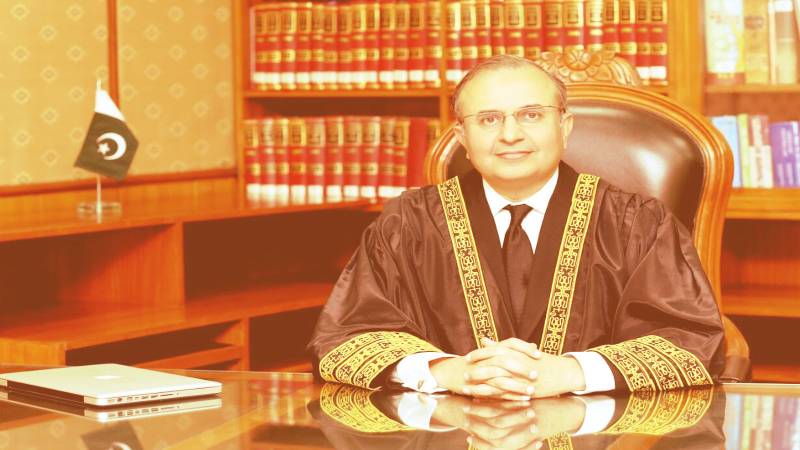
In a 27-page dissenting note to the NAB amendments ruling, Supreme Court Justice Mansoor Ali Shah noted that judges and members of the armed forces are subject to accountability laws.
The National Accountability Ordinance (NAO) of 1999 was amended by the previous Pakistan Democratic Movement (PDM)-led government. On September 15, the apex court invalidated parts of these changes with a 2-1 majority decision.
The three-member bench, which was led by then-chief justice Umar Ata Bandial, comprised Justices Mansoor Ali Shah and Ijaz Ul Ahsan.
During the case's more than 50 hearing dates, the SC judge was questioned about whether judges of the constitutional court and members of the armed forces are exempt from the NAB Ordinance, Justice Shah noted in his dissenting opinion.
The judge said, "We must, therefore, strongly reject the above widely held opinion and make it clear that judges of the constitutional courts and members of the Armed Forces are fully liable under the NAB Ordinance, like any other public servant of Pakistan."
Highlighting the concept of the "trichotomy of power," Justice Shah noted that courts have an obligation to decide on matters in conformity with the law and the Constitution, even in cases where the general public is in disagreement.
Judge Shah emphasised the idea of the "trichotomy of power," stating that no branch of the state may assert dominance over another, and noted that courts should resolve matters in accordance with the law and the Constitution even when the popular opinion is against them.
"Courts must rise above the 'hooting throng' and remain unfazed by the shifting political landscape of today in order to focus on the future of democracy. Unlike political parties, courts are not subject to the popular vote. Even when the popular opinion is against a court's decision, it is still the duty of courts to uphold the law and the Constitution," Justice Shah stated.

